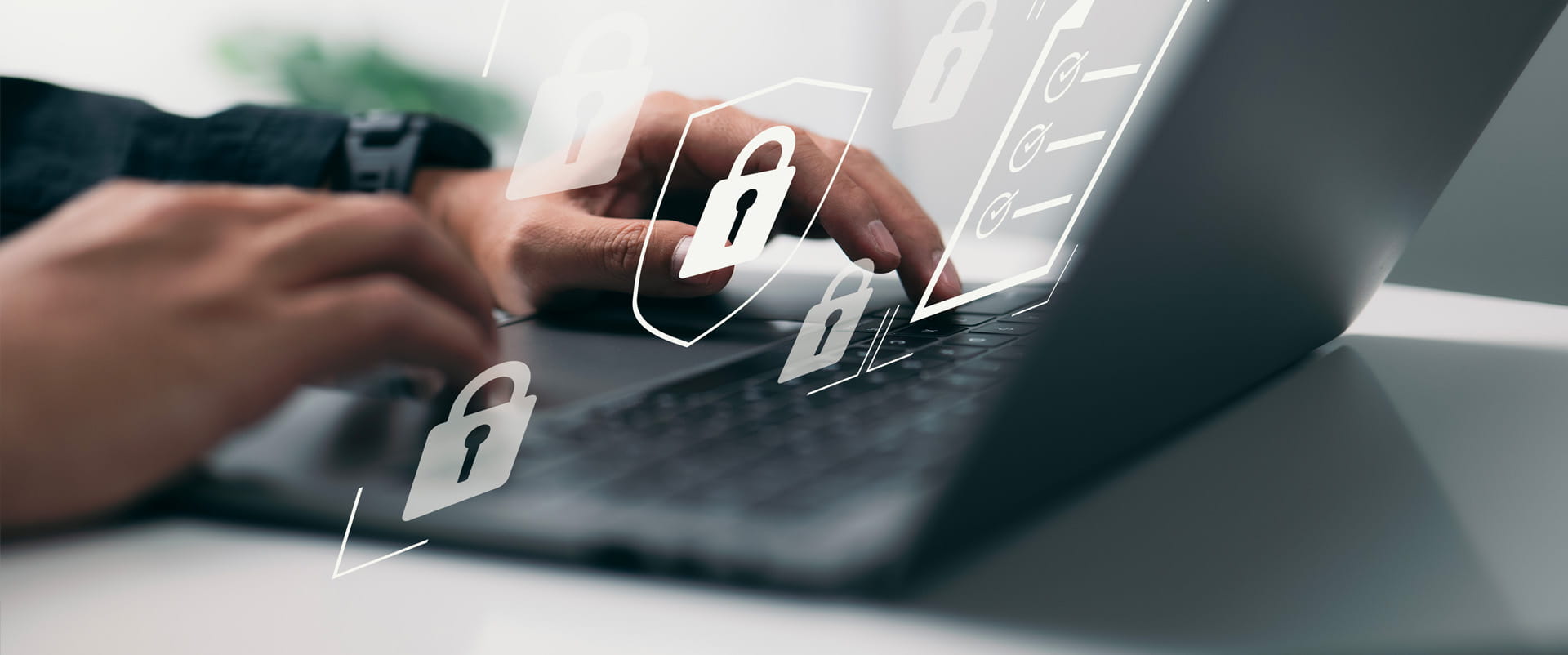With the digital age fully in session, data breaches have emerged as a significant concern. Every time a company announces a data breach, consumers have to wonder if their personal information has been compromised. Cybercriminals just seem to be getting better at their jobs.
Let’s delve into the concept of data breaches, their causes, their impact, and most importantly, how to prevent and react to them.
Identifying the causes of data breaches
Organizations, regardless of their size and industry, are vulnerable to these attacks. Understanding the causes of data breaches is critical for implementing effective cybersecurity measures.
One of the primary causes of data breaches is the use of malicious methods by cybercriminals. These methods include phishing attacks, malware, ransomware and social engineering.
- Phishing: Deceptive emails or messages trick users into clicking malicious links or divulging sensitive information. Don't be fooled by urgency or official-looking appearances — always verify senders and be cautious with attachments.
- Malware: Malicious software can be downloaded unknowingly, giving hackers access to your device and data. Stay vigilant about software sources, use anti-virus protection and keep your software updated.
- Weak passwords: Simple passwords are easily cracked. Use strong, unique passwords for all your accounts and enable two-factor authentication whenever possible.
- Insider threats: Unfortunately, even internal access can be compromised. Businesses need robust security protocols and employee training to minimize this risk.
- Social engineering: Social engineering tactics exploit human vulnerabilities to gain unauthorized access to systems.
Common vulnerabilities exploited by hackers
Hackers often exploit common vulnerabilities in systems to gain unauthorized access to data. Weak passwords make it easier for hackers to guess or crack them, providing them with direct access to sensitive information. Unpatched software refers to outdated applications that haven't received the latest security updates, leaving them vulnerable to exploitation. Insecure network configurations and lack of proper employee training also contribute to the risk of data breaches.
Read more: Boost your security online with fiber internet.
The importance of strong cybersecurity measures
Implementing strong cybersecurity measures is vital in preventing data breaches. This includes using robust firewalls, secure network protocols and encryption techniques. Regularly updating software and promptly patching vulnerabilities helps protect systems from known exploits. Employee education and training programs can raise awareness about cybersecurity best practices and help prevent social engineering attacks. Additionally, implementing multi-factor authentication and conducting regular security audits can further enhance data protection.
Preventing data breaches at your business
By adhering to industry best practices, you can significantly reduce the risk of unauthorized access to your data.
Beyond technical measures, like firewalls and encryption, training employees on cybersecurity best practices is important. Educating your staff about the risks associated with data breaches and providing them with guidelines on how to handle sensitive data can significantly prevent security incidents. Regularly conducting cybersecurity awareness training sessions and keeping employees informed about the latest threats and preventive measures will empower them to make informed decisions when handling data.
An essential aspect of data breach prevention is regularly updating and patching software. By keeping your software up to date and promptly applying security patches, you can close potential security loopholes and reduce the risk of data breaches.
Read more: Fiber internet is built for today’s industries
Reacting to data breaches
When a data breach occurs, it’s essential for businesses to respond promptly and effectively. Having a comprehensive incident response plan in place is crucial to mitigate the impact and protect sensitive information.
Develop an incident response plan
A comprehensive incident response plan outlines the steps to be taken in the event of a data breach. It should include designated response team members, communication protocols, and a clear escalation process. Regularly reviewing and updating this plan is important to ensure it remains effective.
Notify affected individuals and authorities
Once a data breach is identified, it is vital to promptly inform affected individuals, such as customers or employees, about the incident. Additionally, complying with legal requirements, notifying relevant authorities, and cooperating with any investigations is essential.
Mitigating further damage and improving security
After a data breach, it is crucial to take immediate action to mitigate further damage. This may involve temporarily suspending affected services, identifying and patching security vulnerabilities and enhancing security measures to prevent future breaches.
Safeguarding your data
It’s critical to prioritize the protection of your sensitive information. One effective measure to safeguard your data is through encryption.
Data encryption involves encoding your information in a way that can only be deciphered by authorized individuals or systems. By converting your data into an unreadable format, encryption ensures that even if it falls into the wrong hands, it remains inaccessible and unintelligible. Securing personal and sensitive information is of utmost importance, especially in the era of online transactions and digital interactions. Whether it’s your financial details, medical records, or personal identification, keeping this information safe is vital to prevent identity theft, fraud, or unauthorized access.
When choosing reliable data protection solutions, it’s essential to consider factors such as security features, ease of use, and compatibility with your existing systems. Look for solutions that offer strong encryption algorithms, secure storage options, and regular updates to address emerging threats.
Fiber internet as threat protection
Anyone with an internet connection is susceptible to threats and data breaches. Fiber internet, however, is “future-proof” in that it is built to last with advanced technology ready to keep up with modern challenges.
Providers of fiber internet often offer integrated security solutions that have additional security features and services that protect your devices and online activities. Plus, fiber allows for enhanced data encryption that adds yet another extra layer of protection.
Businesses large and small can benefit from the security features offered by fiber internet. Ziply Fiber operates a 24/7 network operations center with monitoring to detect problems before they even happen on a locally owned and operated state-of-the-art network built for the Northwest.
Learn more about our plans for home and business at ziplyfiber.com






